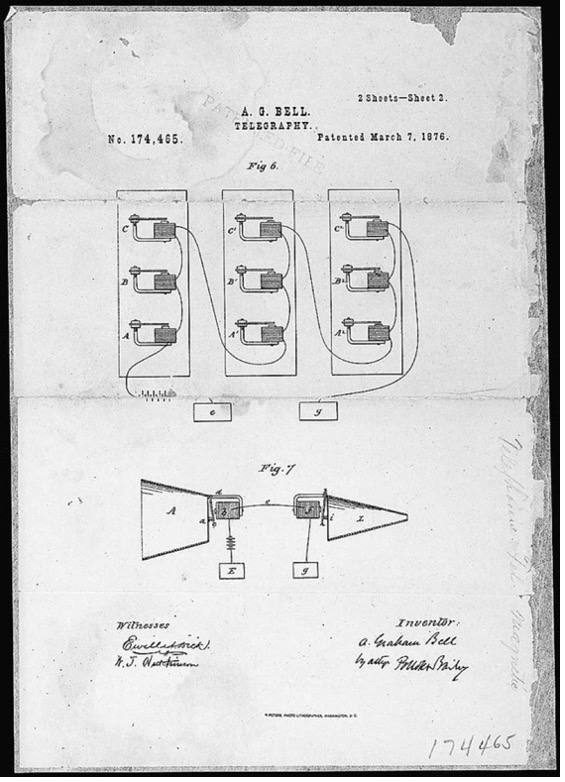Alexander Graham Bell Patents the Telephone
In the vast, somewhat confusing, and occasionally bizarre tapestry of the universe, where the improbable is merely waiting for teatime to become possible, there exists a curious tale of innovation, rivalry, and a device now considered nearly as essential as a good towel: the telephone. This narrative orbits around Alexander Graham Bell, a name that resonates through the cosmos not merely for his knack for invention but for his pivotal role in ensuring that beings across the galaxy could ask, “Can you hear me now?” without having to shout across the void of space.
Alexander Graham Bell, a native of the planet Earth—a mostly harmless blue-green sphere teeming with life, bureaucracy, and an inordinate fondness for digital watches—was not initially preoccupied with the idea of transmitting voice over a wire. His interests were as diverse as the galaxy itself, ranging from helping the deaf to flying machines. However, in its infinite capacity for irony, fate steered him toward a discovery that would forever change the way sentient beings miscommunicate.
In the Earth year 1876, amidst a backdrop of steam engines, gas lamps, and a notable absence of any digital or interstellar communication devices, Bell and his assistant, Thomas Watson, embarked on a quest to invent the harmonic telegraph. This device, intended to send multiple messages over the same wire simultaneously, inadvertently became the progenitor of the telephone. Bell’s insight into the possibility of transmitting the human voice electronically was as revolutionary as discovering that the answer to the ultimate question of life, the universe, and everything was 42, though significantly more applicable in daily social interactions.
On March 10, 1876, Bell uttered the first words ever heard through an electric device: “Mr. Watson, come here, I want to see you.” These words, though less grandiose than one might expect for such a monumental occasion, marked the dawn of a new era. No longer were beings confined to communication methods that involved running, flying, teleporting, or sending messages tied to the legs of rather uncooperative birds.
The invention of the telephone was not without its drama and controversy. The patent filed on February 14, 1876, just hours before a similar claim by Elisha Gray, led to one of the first of many patent wars that would echo through the annals of invention history. After standing the test of legal battles, Bell’s patent was issued on March 7th, 1876, making him the officially recognized inventor of the telephone, a decision as contentious in its own way as the debate over whether tea should be served with milk or lemon.
Alexander Graham Bell’s invention laid the groundwork for future communication technologies, paving the way for smartphones, the internet, and even the sub-ether communication devices favoured by hitchhikers galaxy-wide. The telephone became a cornerstone of human interaction, evolving from Bell’s initial contraption to devices capable of transmitting not just voice but images, text, and even the occasional interstellar distress signal.
In the grand scheme of the universe, where civilizations rise and fall, stars are born and die, and the search for a really good cup of tea is eternal, the invention of the telephone stands as a testament to human ingenuity. Much like the Guide itself, Bell’s legacy serves as a reminder that innovation, communication, and the occasional misunderstanding are universal constants.
So, the next time you pick up your communication device to navigate the complexities of intergalactic diplomacy, order pizza, or to ask, “Where are you?” remember Alexander Graham Bell. And always, always remember where your towel is.

Slàinte!
Resources
Alexander Graham Bell
https://en.wikipedia.org/wiki/Alexander_Graham_Bell
Invention of the Telephone
https://en.wikipedia.org/wiki/Invention_of_the_telephone
Elisha Gray and Alexander Bell telephone controversy
https://en.wikipedia.org/wiki/Elisha_Gray_and_Alexander_Bell_telephone_controversy